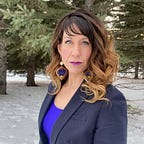COVID-19 and Global Indigenous Health Inequity: A Holistic Life Cycles Approach to Systems Change
Our Canadian Science Policy Panel Takeaways & Actions
Speakers: Jennifer Leason, Canada Research Chair, University of Calgary; Michael Lickers, Indigenous Scholar in Residence — School of Leadership, Royal Roads University; Carrie Bourassa, Director of the National Institute of Indigenous Peoples’ Health, Canadian Institutes of Health Research; Lillian Dyck, Retired Senator, Senate of Canada.
Context: The panel explored the theme of global health in a pandemic by addressing the multifaceted health inequities experienced by Indigenous peoples. Each scholar addressed the health inequity experienced by Indigenous peoples in the spectrum of their life cycle from childhood to Elders. The goal was to amplify Indigenous academic voices at the conference to counter Western scientific and colonial deficit views of how to “help” Indigenous peoples cure their poor health with Western medicine.
Takeaways
- Indigenous women are less likely to seek health care because of fear of racism, birth alerts and child apprehension, putting them at greater risk for poorer health outcomes.
- Though rediscovery camps have existed since 1978, they have not been well funded. Land-based education will help maintain sacred connection with land bases, knowledge of self and Indigenous traditional knowledge by teaching Indigenous language and leadership skills.
- Cultural safety is about power and equity relating to Indigenous peoples. It is defined by what is comfortable and safe for the Indigenous person in various settings, including healthcare. Desired outcomes include: acknowledging the value of knowledge, expertise and skills of Elders and Knowledge Keepers; and a strength-based approach that is solution oriented.
- Aboriginal science includes the idea of interconnectedness, and with that stems a respect for all. The mind includes the spirit and is part of pedagogy for Indigenous peoples whereby spiritual insights and creativity are passed on from previous generations.
- Feminist science is very important as women ask different questions (e.g., heart disease).
Actions
- Create culturally safe spaces for Indigenous women seeking maternal health services by pushing for policy changes. Organizations doing this include the National Aboriginal Council of Midwives and Pauktuutit Inuit Women of Canada.
- Support and fund organizations such Ghost River Rediscovery Program that connect young with the land, engage in Indigenous leadership training, and connect back with their roots. (Recommended reading: Last Child From the Woods by Richard Louv.)
- Ethical engagement of communities in health research must be long-term, thoughtful, reciprocal and trusting to create strong relationships. The research should be conducted with a community-based health research approach, with opportunities for communities to hold grants, build capacity, and implement and disseminate the research. (e.g., Morning Star Lodge in Regina is a good example of this approach.)
- Indigenous communities must be leading the Indigenous health priorities in Canada, which requires policy change.
- The Health Care Act must be amended to include anti-racism language.
Interview with Dr. Jennifer Leason
Jennifer Leason, Assistant Professor at the University of Calgary and CRC-Indigenous Maternal Child Wellness, interviewed by CSPC team member, Sumedha Sachar.
Please sign up for the Women Warriors newsletter to learn more about Indigenous women’s holistic health. www.womenwarriors.club
